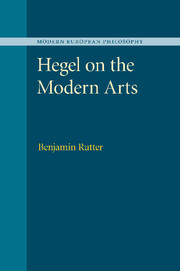5 - Modern literature
Published online by Cambridge University Press: 06 December 2010
Summary
The bird would cease and be as other birds
But that he knows in singing not to sing.
The question that he frames in all but words
Is what to make of a diminished thing.
Frost, “The Oven Bird” (1916)We began a defense of art's indispensability by seeing, in chapter 1, that philosophical accounts of the satisfactions of modern life have an unsatisfying tendency toward abstraction and the self-alienating indenture of the lower faculties to the higher. The challenge to the post-romantic artist was to find ways to express the complexities of nineteenth-century life with the concrete immediacy necessary for aesthetic experience. The obstacles here derived from those very complexities – the overlapping jurisdictions of private right, moral duty, and civic role-playing elaborated in Hegel's social theory – and from the heavily discursive, intellectualist habits of mind characteristic of a prosaic culture. Later chapters have revealed that art's liberation of sense and imagination then turned out to involve the painter's self-investment in the act of creation; the poet's estrangement of the habits of prose; and the efforts of both to confront their audiences with an everydayness both invitingly familiar (the mirror in the roadway) and depressingly banal (yet another glass of schnapps). On the reading I have been developing, these are the elements – virtuosity, self-investment, an aggressively unnatural style, and an aggressively naturalist content – on which a Hegelian theory of the modern arts must stand.
- Type
- Chapter
- Information
- Hegel on the Modern Arts , pp. 212 - 268Publisher: Cambridge University PressPrint publication year: 2010



